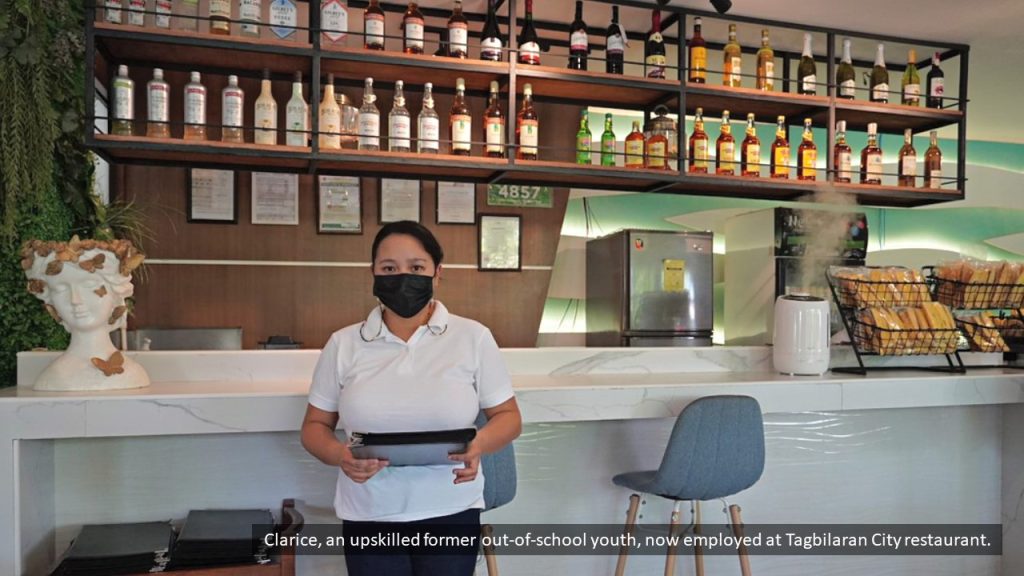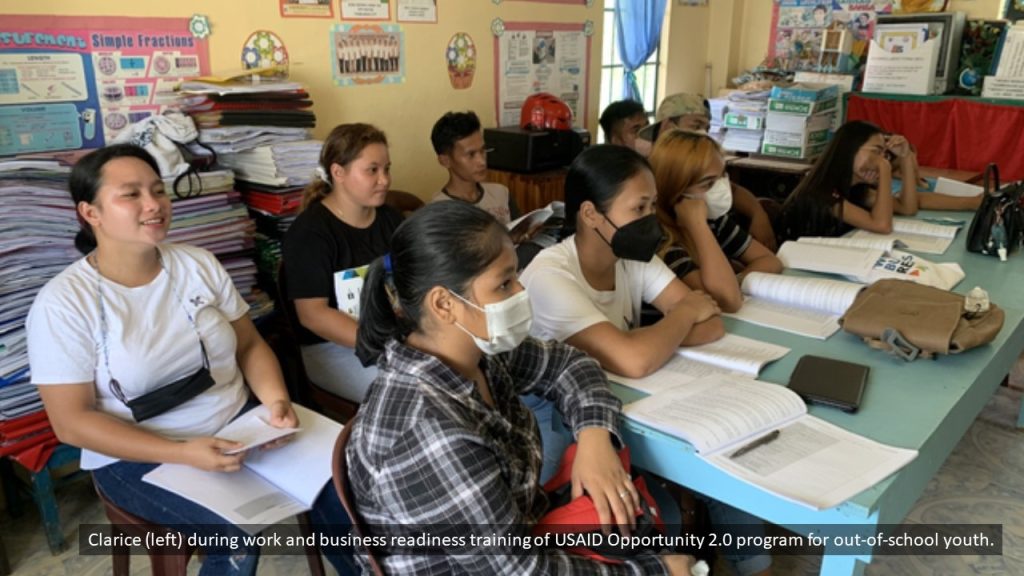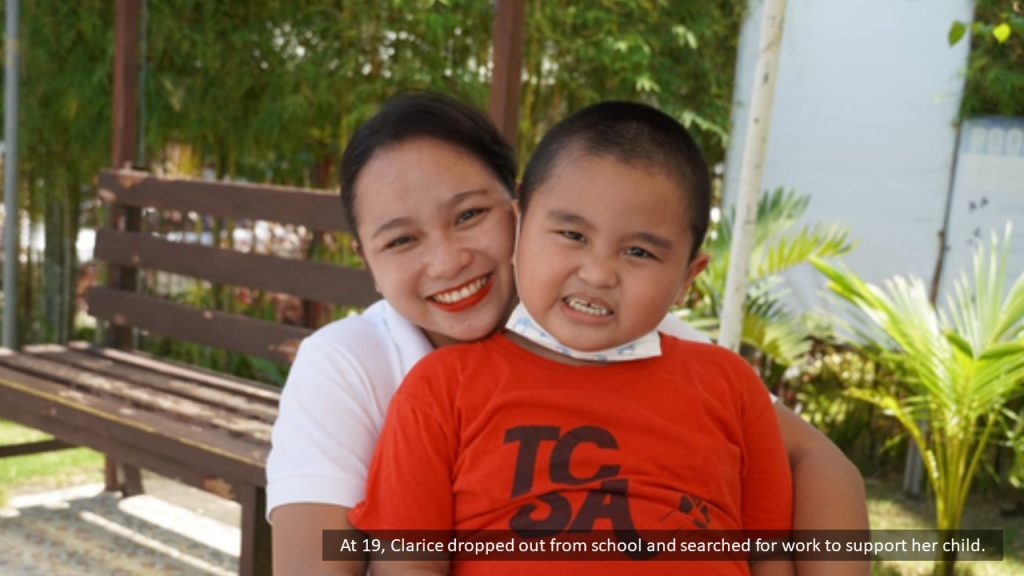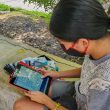USAID-TESDA collaboration helps young mother get back on her feet in Tagbilaran City

Leaving school to be a mom
When Clarice found out she was pregnant at 19, she dropped out of college. She was only in her freshman year. “I felt my parents’ disappointment. I was losing hope and I felt dejected. I also felt immense guilt when I thought about becoming a mom at such a young age and quitting my studies. I didn’t believe that I would be able to achieve anything after this.”
When their son was born, her partner was working at a local mall as a promodiser. One income was barely enough to support their new family as well as two more families that were relying on Clarice and her partner. She tried job hunting but found she lacked the skills and competencies local jobs required.
Back on her feet
For young people in challenging conditions, a short-term, flexible way of upskilling is through Technical Vocational Education and Training or TVET. Unfortunately for Clarice, the nearest training center to her in Tagbilaran City required fees she could not afford as a stay-at-home mom.
When USAID boosted its support to TVET in the Philippines, it made sure it was more accessible to marginalized youth. USAID and Education Development Center, through the Opportunity 2.0 program, made the TESDA Online Program (TOP) more accessible to out-of-school youth through loaning tablets, distributing copies of printed modules, and engaging community-based facilitators. Youth like Clarice were now able to upskill and pursue a chosen TVET course.

USAID and EDC also enhanced the TVET curriculum with TESDA so that trainees gain more life and soft skills along with their technical skills, making them even more work and business-ready.
In Tagbilaran, tourism and hospitality are the leading job generators open to hiring young people like Clarice. When she learned about USAID Opportunity 2.0, she enrolled in a housekeeping course through TOP, and slowly gained back her confidence and drive to support her family. Motivated by previous job rejections where she was told she lacked skills, she successfully completed her TVET course and was finally hired by local restaurant in the city.
“I got to apply the skills I learned in communicating with people and keeping the restaurant up to standard in terms of cleanliness,” Clarice beamed.
After an intensive one-month training period, Clarice received positive remarks from her new employer. “Clarice has good communication skills, especially in dealing with customers. She can work under pressure even with less supervision,” said Ms. Janice Anore, JJ Seafood Village Restaurant HR Manager.

“My parents are so happy that I made it. Because of this opportunity that I had through USAID, I feel as if I completed a four-year degree course. I no longer feel that different from people who actually finished college.”
“I believe I can take on anything”
“I did not think [the trainings] will be provided to us for free. Because of Opportunity 2.0, I found a good job. Even if I will face many challenges in the future, I believe I can take on anything. With my new job, I know that our household will eventually be more financially stable, and we will be able to provide for our child better.”

Stories like Clarice’s are not uncommon. Difficult social, economic, familial, and personal circumstances are hindering young people from accessing better opportunities. USAID’s support enabled TESDA to ensure holistic training for out-of-school youth and prepare them to become valuable assets in the workplace.
USAID and TESDA continue to collaborate in engaging more marginalized youth in TVET courses, and connecting them with local businesses to gain employment. As of January 2023, more than 1,200 out-of-school youth have completed TVET courses online across 12 Philippine cities.#





